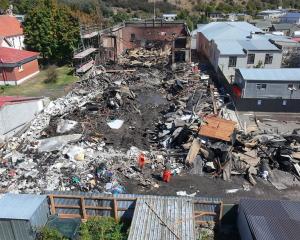
Conor Scott Lawson, 32, appeared in the Dunedin District Court on Friday after earlier admitting his sixth drink-driving offence, fifth breach of licence conditions, committing a threatening act and wilful damage.
The court heard that on March 3 last year, the defendant had been drinking at a party when he got into an argument and wanted to leave.
He got into his car, which was fitted with an alcohol interlock device, but the use of a sock meant he was able to bypass the system.
Lawson then drove down High St, but failed to give way at an intersection, forcing a police patrol vehicle to take evasive action.
As police turned around, the defendant fled.
He was eventually caught in Serpentine Ave, and exited the car with his hands in the air.
A blood test revealed a blood-alcohol level of 114mg — the legal limit is 50mg, but zero on an alcohol interlock licence.
The defendant confessed he had used a sock to defeat the device and drive.
While on bail for that offending, on May 1 last year, Lawson got into an argument with his then-partner as she was receiving messages from a "potential suitor".
He accused her of being a cheater and broke her cellphone.
The victim left, and while she was away Lawson defaced the flat.
With a whiteboard marker he wrote "cheater" in a number of places and damaged wine glasses, a photo frame and upended house plants.
Judge David Robinson said alcohol was an issue for the defendant and was surprised he was able to beat the alcohol interlock device.
"I’m astounded that a simple measure like that is able to overcome a device which is ... intended to keep the public safe."
The judge was also concerned Lawson continued to drink and drive despite completing The Right Track programme — a highly effective course with an 80% non-recidivism rate.
While this offending marked his first convictions for family violence, they needed to be his last.
"These reflect issues of power and control, [and] a possessive attitude toward women."
Judge Robinson sentenced Lawson to seven months’ home detention and ordered him to pay reparation of $1000 for the phone he broke.
He disqualified the defendant from driving for 12 months and one day, after which he would be back on the alcohol interlock licence, and ordered him to pay the blood-analysis fee of $212.












